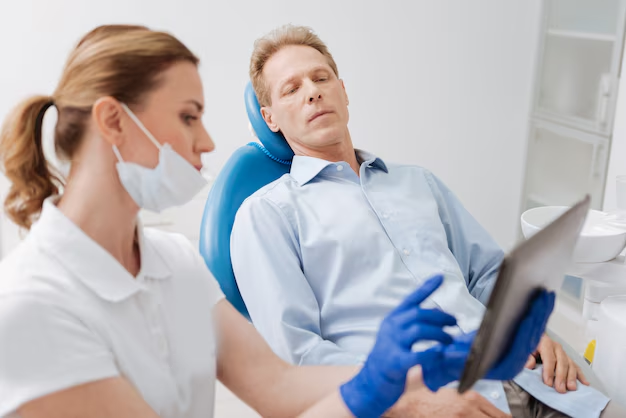Community Dental Health Coordinator: A Promising Career in Community Health
The role of a Community Dental Health Coordinator (CDHC) is an integral part of community health services, providing essential dental care education and access to underserved communities. By bridging the gap between dental services and the community, CDHCs play a crucial role in promoting oral health awareness and improving public health outcomes. With a history rooted in addressing the disparity in dental care, this career appeals to students interested in making a meaningful impact in the health sector.
Education and Training
High School Preparation
Aspiring Community Dental Health Coordinators can start preparing for their careers as early as high school by focusing on courses such as biology, chemistry, and health sciences. Participation in health-related clubs or volunteer opportunities in dental clinics can provide valuable exposure to the field.
Required Degrees and Certifications
To become a CDHC, individuals typically need at least an associate degree in dental hygiene or a related health science field. Some positions may require a bachelor's degree, particularly in community health or public health, to provide a comprehensive understanding of health systems.
Specialized Training Programs
After completing the foundational degree, specialized training programs for CDHCs are essential. These programs focus on community outreach, patient education, and coordination of dental services with a focus on public health strategies. The American Dental Association (ADA) offers specific certification for CDHCs, helping prepare them for effective community engagement.
Licensing and Board Exams
Licensing requirements for CDHCs vary by state but generally involve passing the National Board Dental Hygiene Examination (NBDHE) and obtaining state-specific credentials. Continuous education is often required to maintain licensure and keep up with advancements in dental care practices.
Continuing Education
CDHCs are encouraged to participate in continuing education courses to stay current with the latest developments in dental care, public health policies, and community outreach methodologies. This commitment to learning ensures they can deliver the best possible service to their communities.
Education Pathway Summary Table
| Step | Description | Example Institutions |
|---|---|---|
| High School Preparation | Focus on science courses and volunteer work | Local high schools, dental clinics |
| Associate Degree | Dental Hygiene or Health Science | Community colleges, universities |
| Bachelor's Degree (optional) | Public Health or Community Health | University of California, Bloomberg School of Public Health |
| Specialized Training | CDHC Certification Program | American Dental Association |
| Licensing | NBDHE and state-specific exams | State dental boards |
| Continuing Education | Advanced courses in public health/dental care | Online platforms, ADA workshops |
Skills and Qualities Needed
Community Dental Health Coordinators require a blend of hard and soft skills to perform effectively in their roles.
Essential Hard Skills
- Dental Knowledge: Understanding dental procedures, oral hygiene practices, and how to communicate this information to patients.
- Data Analysis: Ability to assess community dental health needs through data collection and analysis.
- Program Planning: Skills in designing and implementing community dental health programs.
Essential Soft Skills
- Communication: Effective verbal and non-verbal communication to interact with patients and community leaders.
- Empathy and Compassion: Sensitivity to the diverse needs and backgrounds of community members.
- Cultural Competency: Awareness and respect for cultural differences that affect health perceptions and practices.
Application in Real-World Settings
CDHCs apply these skills by conducting community workshops, developing educational materials, and liaising between dental care providers and the community. For instance, they might organize a dental health fair in a local school to provide preventive education and services.
Salary
U.S. National Averages
The salary for Community Dental Health Coordinators varies based on factors such as experience, location, and the type of employer. On average, CDHCs can expect to earn a base salary that aligns with mid-range public health positions.
Salary Ranges by Career Stage
| Career Stage | Salary Range |
|---|---|
| Entry Level | $40,000 - $50,000 |
| Mid Level | $50,000 - $65,000 |
| Experienced | $65,000 - $80,000 |
Factors Affecting Salary
- Location: Urban centers may offer higher salaries due to the cost of living, while rural areas might offer higher pay to attract talent.
- Education Level: Advanced degrees or specialized certifications can lead to higher salaries.
- Specialization: CDHCs specializing in certain community demographics or unique health challenges may earn more.
Career Outlook and Job Help
Job Growth Data
According to the Bureau of Labor Statistics (BLS), the demand for community health workers, including CDHCs, is expected to grow by 13% over the next decade, indicating a robust demand for professionals in this field.
Common Employment Settings
- Public health departments
- Community health centers
- Non-profit organizations
- Schools and educational institutions
Career Advancement Opportunities
CDHCs can progress to roles such as Public Health Director, Health Educator, or Community Program Manager, with additional education and experience.
Tips for Job Seekers
- Resume Building: Highlight any volunteer work, internships, or relevant coursework in community health.
- Networking: Join professional organizations such as the National Community Health Worker Association to build connections.
- Certification Renewals: Stay updated with new certifications and renew existing ones on time to remain competitive.
Final Insights
A career as a Community Dental Health Coordinator is not only rewarding but also vital in bridging health inequities within communities. CDHCs serve as advocates for change, educators of oral health, and facilitators of essential healthcare services. For students passionate about public health and community service, this path offers both professional growth and the chance to make a lasting impact. As you contemplate entering this field, remember that with the right education and dedication, you can become a central figure in promoting healthier, happier communities.

